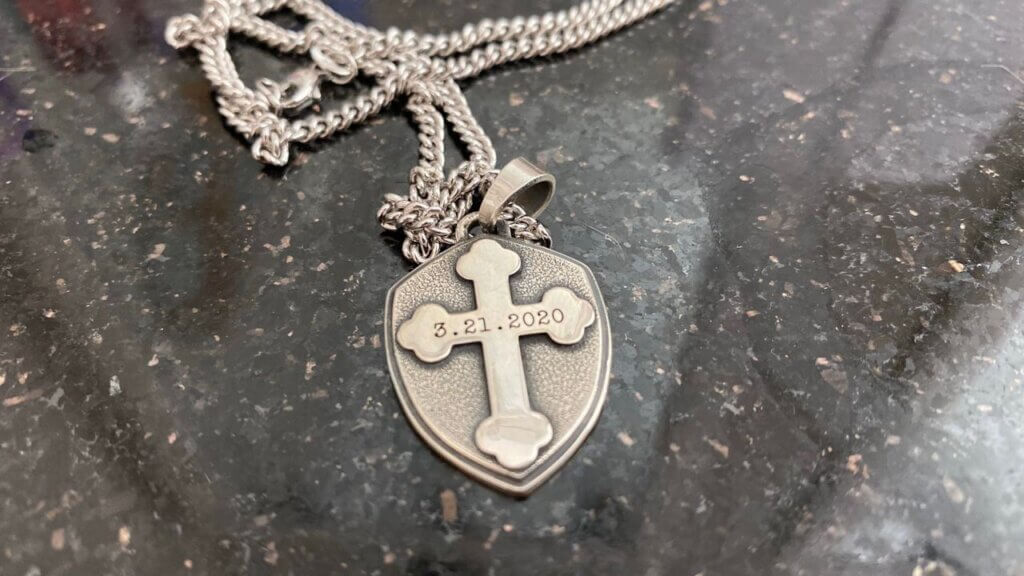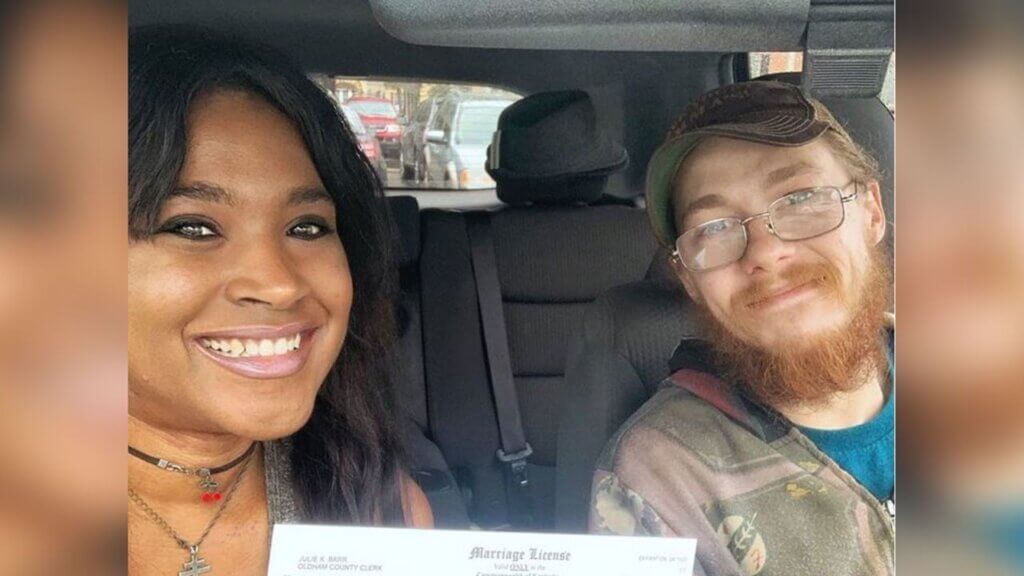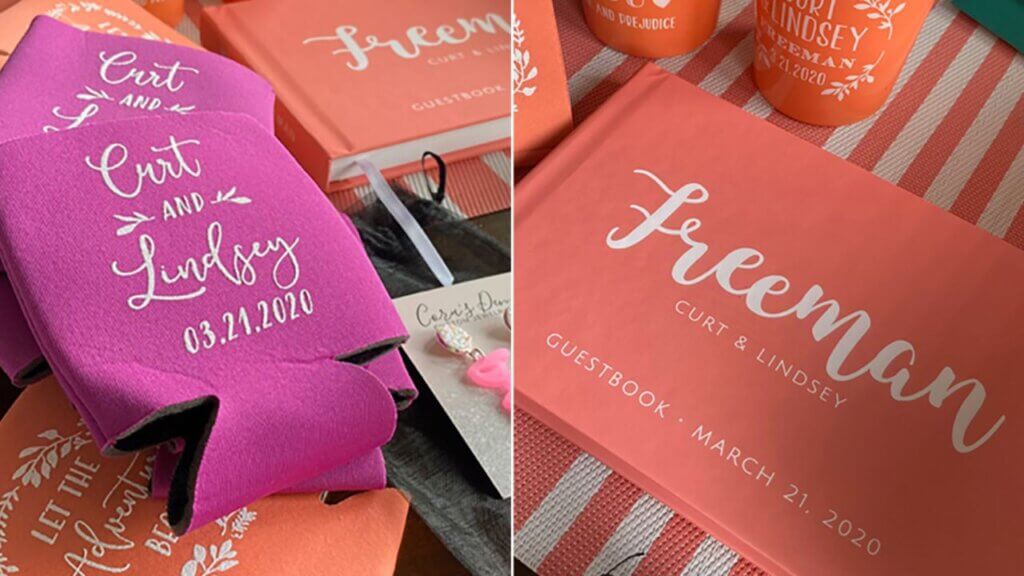By: Erica Orden and Kara Scannell, CNN

CNN — As government centers around the country shuttered to contain the coronavirus pandemic, in Kentucky, Angela Holbrook and her fiancé rushed 20 miles to a neighboring county Wednesday to secure a marriage license.
“We were planning to take a 10-minute, leisurely walk, and instead it’s us panicking and driving to another city and all the doors are locked,” said Holbrook, who envisioned getting a license at a courthouse a mile from her home.
Holbrook and her fiancé arrived for their 1 p.m. appointment to find a confusing collection of buildings, many with their doors secured shut. When they found the right entrance, the clerk told them licenses were no longer available to people living outside the county as of noon.
But in the end, the clerks made an exception for the couple.
“We got the license,” Holbrook said, “but barely.”
Securing a marriage license is quickly turning out to be another casualty of the coronavirus pandemic, causing couples around the country to scramble this week to get a license while they still could.

Marriage licenses in many states expire within 30 days, and with county clerk’s offices closing or limiting their hours, people who were planning to get married in the near future need to obtain a license before courthouses close their doors.
As the coronavirus pandemic has paralyzed the country, forcing courts and municipal buildings to shutter, obtaining necessary documents is among the consequences of efforts to keep people home and curtail the spread of the virus.
This means other state-issued licenses are on hold, too. In Washington, DC, penalties for expired vehicle inspections, drivers licenses and vehicle registrations will be waived “until DC DMV reopens at full operating capacity.” Residents are encouraged to pay all tickets online.
Kentucky is giving drivers whose licenses are about to expire a three-month extension. In Texas, drivers will have an extra two months to renew their licenses.
For some, marriage licenses are more than a union
Many counties around the country, including Orange County, California, and Miami Dade Count, Florida, stopped issuing marriage licenses as of this week.
Elsewhere, clerks and courts are trying to keep the marriage bureaus open, but taking steps to limit the number of people in one place at one time.
In Cincinnati, the Hamilton County Probate Judge Ralph Winkler wrote in a Facebook post on Sunday that, “At this time, however, ONLY the applicants will be permitted into the Marriage License Department by appointment only.”
In Clark County, which includes Las Vegas, the county closed nearly all of its buildings on Wednesday and initially decided to keep its downtown marriage license bureau open for five hours a day during the week. But by late Wednesday, they suspended all marriage activities for 30 days. Calls to the famous “A Little White Wedding Chapel” were not answered Thursday afternoon.
In New York City, one of the areas hardest hit by the pandemic, the city clerk’s office is still granting licenses and performing ceremonies. A clerk who answered the phone enthusiastically told CNN on Thursday it is “first come, first served.”
For some, it’s not only about getting the license but getting married –for other reasons such as health insurance purposes or to provide emotional security – before the license expires.
Lindsey Henry, a 30-year-old news reporter in Houston and an ordained minister, turned to Twitter on Wednesday to offer to marry people.
“If you need me to sign a paper for you and perform a ceremony I’ll do it,” she told CNN. “I’m assuming there are going to be some people who will want to be legally married” for insurance or other purposes, she said.

Henry and her husband personally experienced the disruption of coronavirus. They eloped last year but planned a wedding reception for friends and family set for this Saturday. She has ordered the flowers and a wedding cake, has boxes of monogrammed koozies, and a cross necklace with the date 3/21/20 engraved on it. Now, the wedding ceremony is canceled.
Anyone open?
With cities and counties rapidly changing their office hours and services, some couples, like Holbrook and her fiancé, crisscrossed their state to obtain marriage licenses.
In California, Caleb Yalch and his fiancé, Destiny Ruiz, both 25, got their marriage license on Tuesday, after Yalch’s father, a minister who performs marriage ceremonies, advised them that time was running out.
Yalch, who lives in Chino, California, and works for a trucking company, went to Riverside County, where he and Ruiz ran into a pair of friends also getting their license before the cutoff after an earlier attempt in San Bernardino County had been scuttled when they realized it was appointment-only.
While there, Yalch called yet another set of their friends, a couple that is set to be married in three weeks.
“We hit them up, and we said, ‘Hey guys, if you plan on doing this, today is the last day to get the license.’” The third couple also went Tuesday, Yalch said.
On Wednesday morning, Emily Theys and her fiancé headed to the Pitt County Register of Deed’s office in North Carolina to obtain their marriage license.
While they were signing the paperwork, she says, the clerk working with her was alerted by a co-worker that, “we just got a message to not do any more marriage licenses unless you had an appointment.”
Since Theys filled out her application online the night before, the clerks were able to finish the paperwork within 10 minutes for a license that will expire in 60 days. Theys and her fiancé walked out with their license – 59 days before their May wedding.
For Megan Botelho, her effort to obtain a marriage license came down to clerks who were willing to bend the rules. Botelho, 36, a DoorDash driver in Dartmouth, Massachusetts, and her fiancé had planned on getting their license this week.
On Tuesday, before they planned to head to their town hall, she looked at the town’s website and learned they had stopped servicing the public that day. They called four nearby town halls and got the same response.
Finally, Botelho located a clerk a few towns away who said she considered a marriage license to be “an exception.” Botelho and her fiancé immediately headed to the clerk’s office, where they found a woman waiting outside.
“Are you here for the marriage license?” she asked quietly.
The woman instructed the couple to go stand by a side door, where she reappeared from the inside, peeked out and ushered them into the building, shutting the door quickly behind.
Sitting on folding chairs arranged behind filing cabinets so they couldn’t be seen, the couple filled out the paperwork, while the woman and her assistant laughed about the circumstances.
“It felt so surreal to have to go through this just to get a marriage license,” Botelho wrote in an email. “I’m so thankful for those women who were willing to bend the rules a bit to allow us to marry.”